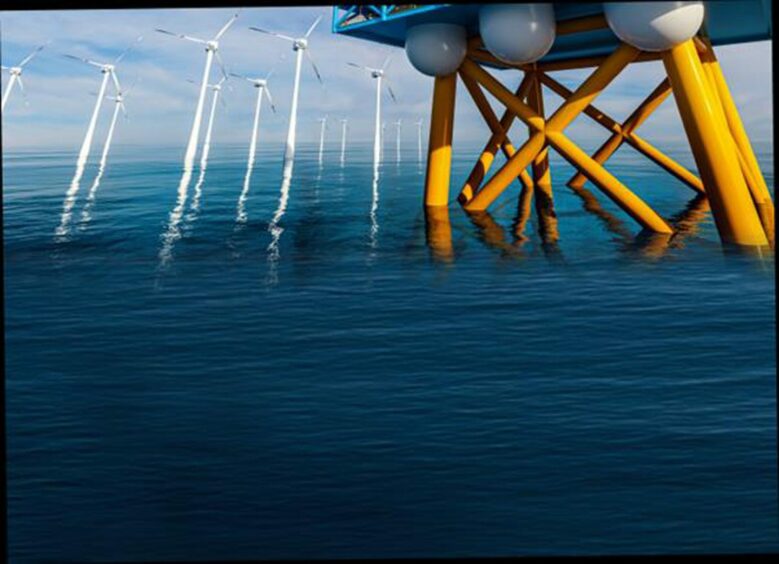
The new National Wealth Fund will boost UK investment in green technology, according to business and trade secretary Jonathan Reynolds.
Speaking on Monday at the government’s inaugural International Investment Summit, Reynolds told investors that the fund will unlock private investment in renewable energy, “turbocharging” the outlook for green technology.
The National Wealth Fund was launched over the summer to invest in eight sectors identified by the government as industries of the future.
Clean energy is core to the UK’s new modern industrial strategy, alongside investment in the creative, defence, digital and technologies, financial services, life sciences and professional and business services industries.
The new wealth fund is expected to mobilise billions of pounds of private investment in these areas, in addition to £7.3 billion that will be allocated through the UK Infrastructure Bank in priority sectors.
The Green Finance Institute advised the government on how to implement the National Wealth Fund as part of a taskforce, which held its first meeting in July, led by Chancellor Rachel Reeves and energy secretary Ed Miliband.
At the time of the fund’s launch, Miliband said: “Our Mission to make Britain a clean energy superpower is about investing in Britain. Our National Wealth Fund will help create thousands of jobs in the clean energy industries of the future to boost our energy independence and tackle climate change.”
Industry
Prime Minister Keir Starmer’s new industrial strategy kicked off with the appointment of Clare Barclay, chief executive of Microsoft UK.
Barclay will chair the government’s new Industrial Strategy Advisory Council, which was set up to create a dialogue with business and unions and advise on industrial policy.
She said in a statement: “As Chair of the Industrial Strategy Advisory Council, I will ensure the Council provides a clear and strong voice on behalf of business, nations, regions, and trade unions, as we invest for the future to ensure that our prosperity is underpinned by robust growth in key sectors right across the country.
“Whilst we fully embrace the industries of today, we must also have a clear plan for future growth, and the Advisory Council will play a central role in shaping and delivering this plan.”
Business Secretary Reynolds said the government’s new industrial strategy will “hardwire stability for investors and give them the confidence to plan not just for the next year, but for the next 10 years and beyond”.
‘Tripartite’ leadership
While speaking at the International Investment Summit on Monday, Reynolds said the Department for Energy Security and Net Zero will be complemented by an expanded government office for investment, providing “powerful” tripartite sponsorship, led by the new minister for investment.
This week the government appointed Poppy Gustafsson, the former co-founder and chief executive of cyber security company Darktrace PLC, to lead the Office for Investment.
Reynolds said the Office for Investment would work hand in hand with other departments.
At the investment summit on Monday, Prime Minister Starmer added that, along with Great British (GB) Energy, the new National Wealth Fund “will accelerate investment in clean power and future technologies”.
He echoed Reynolds who said investment in these sectors will be supported by an expanded Office for Investment led by former DarkTrace executive Gustafsson.
Revolution
While speaking in Guildhall, Starmer said growth was “a shared ambition” between his Cabinet and the private sector.
He said he wants to capitalise on “huge revolutions” in clean energy and to rip up the red tape that has so far blocked projects.
Economic growth will be vital to fundamentally changing the way people live and work and transforming working lives for the better, Starmer said.
“It’s not just that stability leads to growth – though we all recognise that – it’s also that growth leads to stability,” said Starmer, who added that he wants the UK to be “a country that is open for business”.
The new wealth fund, together with recently announced Aberdeen-based energy company GB Energy, “will accelerate investment in clean power and future technologies”, Starmer said.
“We’re building a more strategic architecture for growth; a way for investors to have a much steadier hand on the tiller,” Starmer said, highlighting the role of the National Wealth Fund and GB Energy.
The prime minister described government’s partnership with the private sector as ambitious but “unsentimental; guided by the market” and focused on delivering comparative advantage.
“We give the businesses of this country the best conditions to succeed,” said Starmer, who added: “People want to know Britain can be trusted partner.”
The key test for regulation will be growth and whether it makes the economy more dynamic, according to Starmer.
He vowed to get rid of red tape blocking grid connectors and train lines and other industrial projects, saying, “We will get rid of it,” and adding that the country is “united behind growth: our door is open”.
Recommended for you

